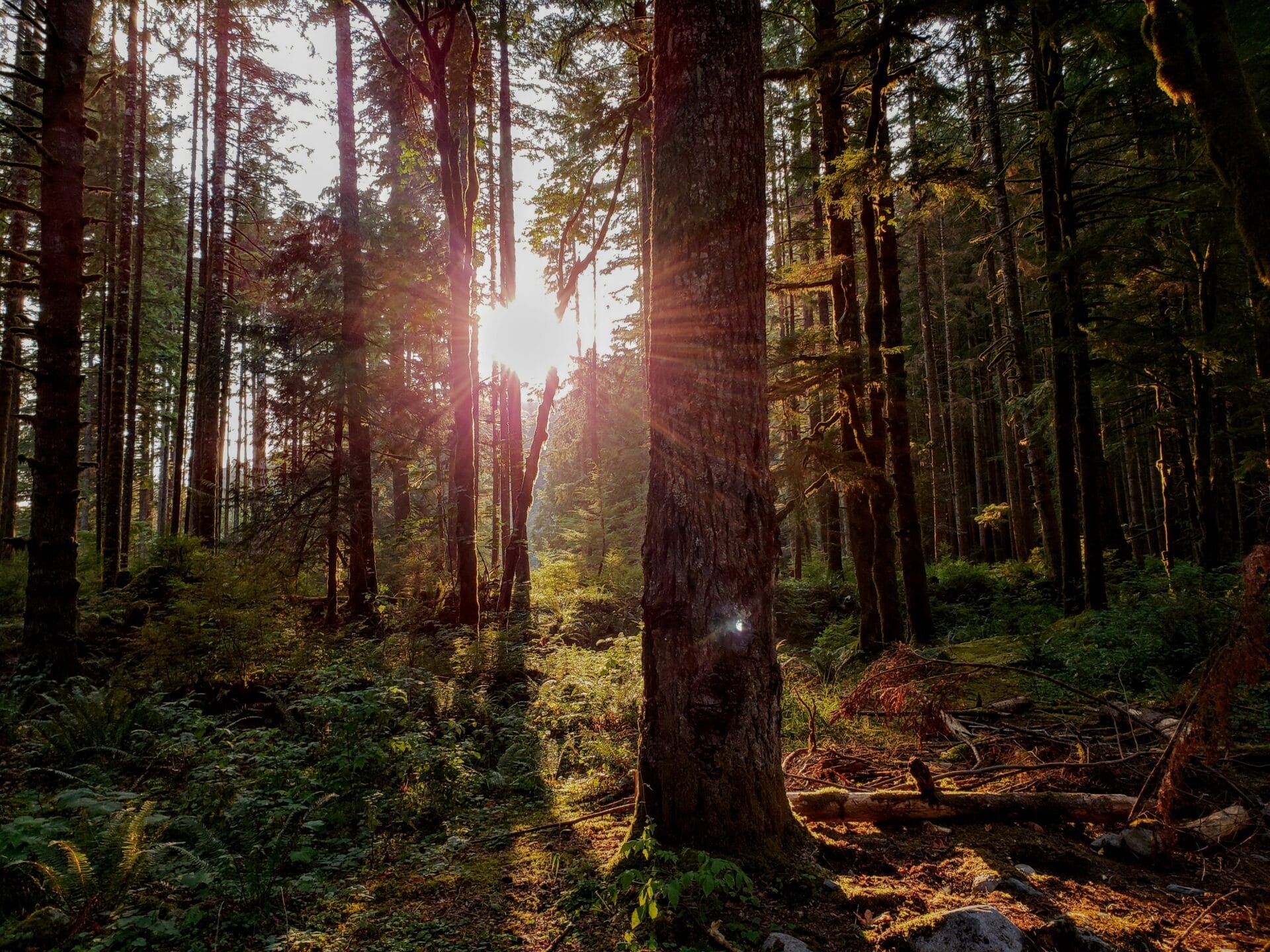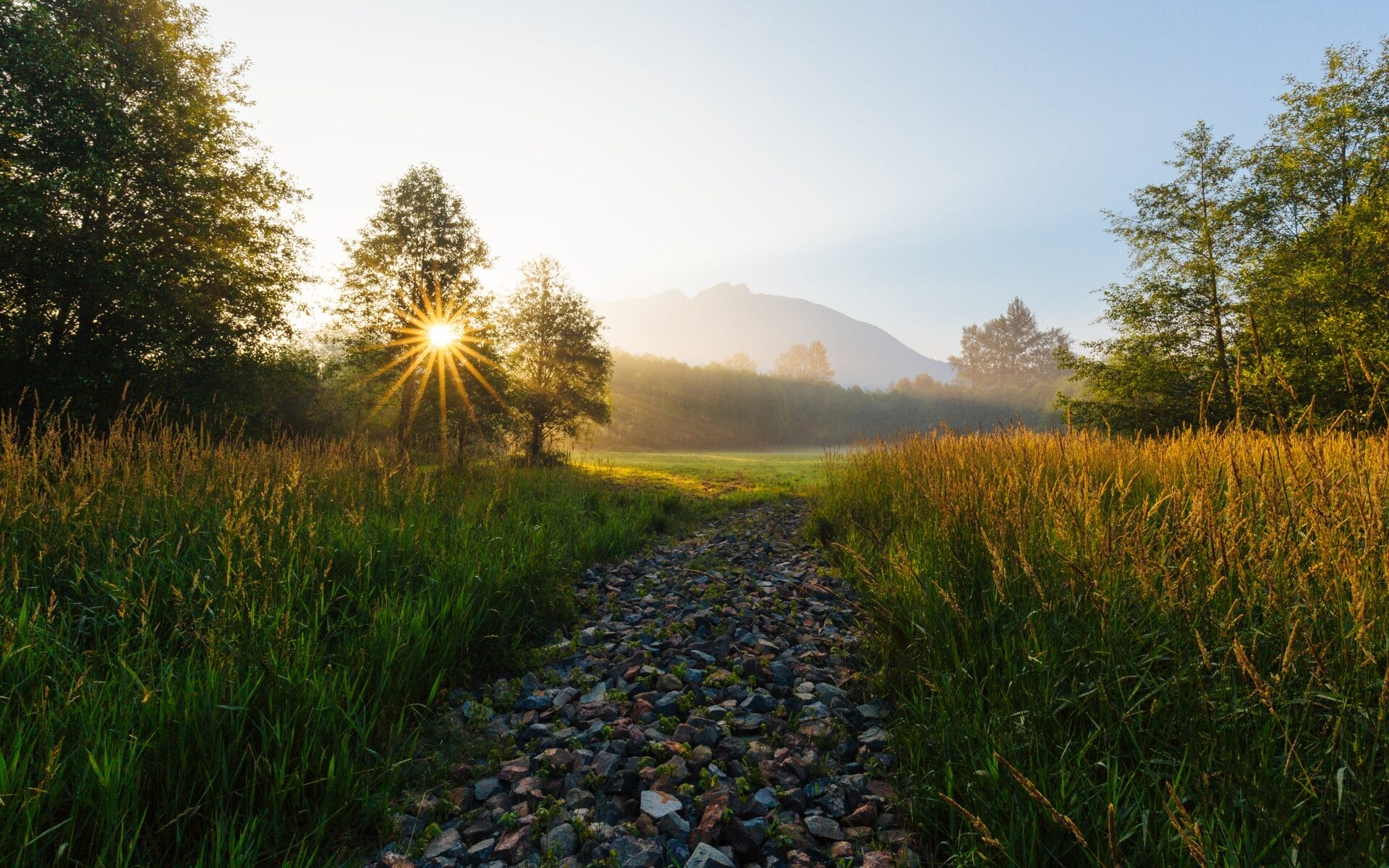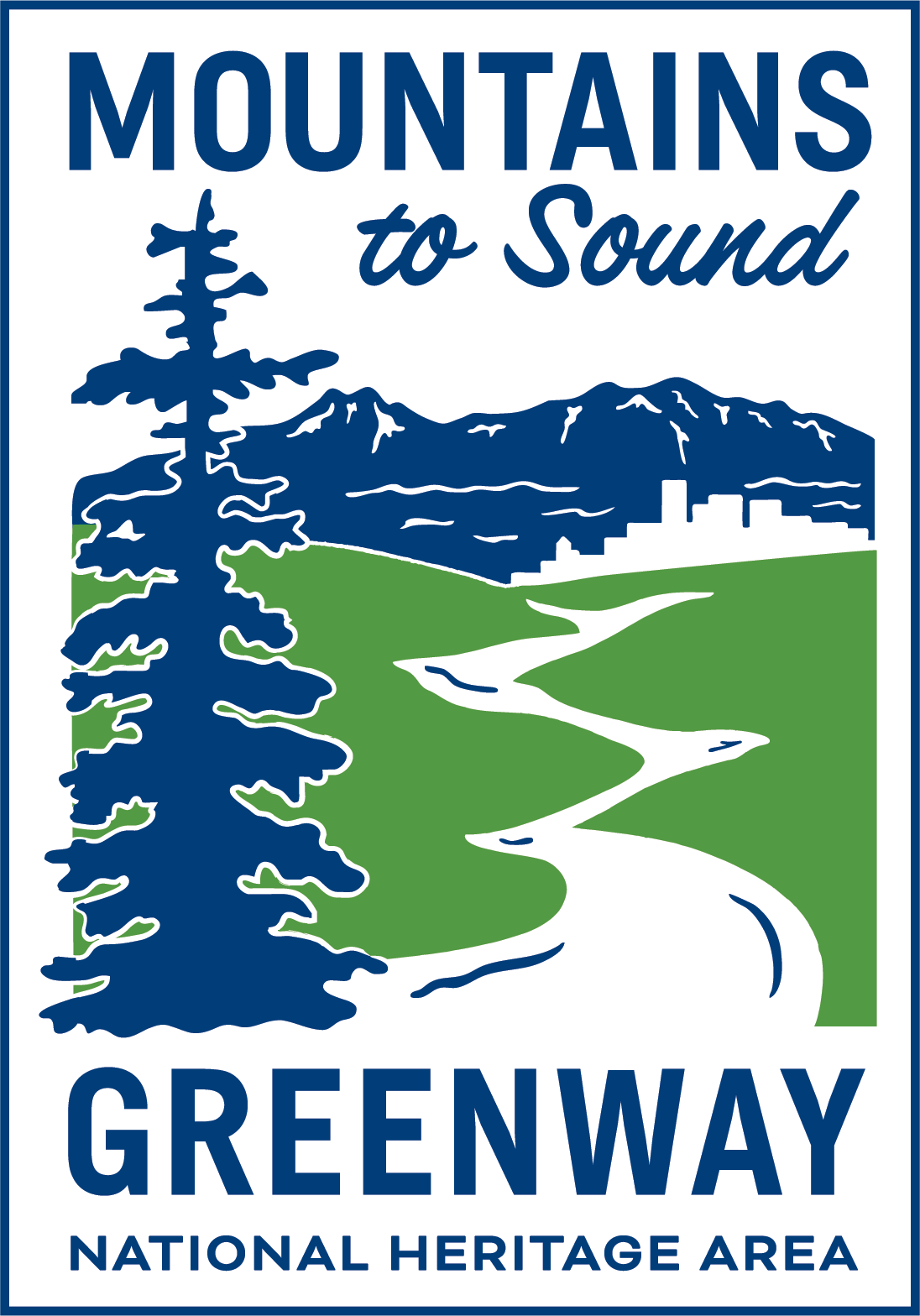2024 Legislative Priorities
From Ellensburg to Seattle, the Mountains to Sound Greenway National Heritage Area (Greenway NHA) encompasses spectacular natural lands, productive working farms and forests, opportunities for outdoor recreation, and vibrant communities with strong economies. Through supporting local, state, and federal investments, we can preserve this natural legacy for future generations.
The Mountains to Sound Greenway Trust (Greenway Trust) collaborates with public land management agencies, conservation groups, citizen volunteers, and businesses to advocate for the health and accessibility of parks, forests, and waterways. Public land management agencies require adequate funding to manage these special places in order to connect natural lands, restore critical ecosystems, and maintain existing trails and facilities.
As the Washington State Legislature’s 2024 session kicks off, here are just a few of the priorities across the Greenway NHA:
Federal
National Heritage Area Program and Funding
The National Heritage Area Act of 2022 passed with strong bipartisan support in Congress, and created (for the first time) an official system of National Heritage Areas (NHAs) within the National Park Service (NPS), codifying the relationship between the NPS and NHAs and recognizing the effectiveness of this public-private partnership model. The law ensures long-term consistency by reauthorizing 45 National Heritage Areas for 15 years, ending the practice of short-term, year-by-year authorizations.
As a member of the Alliance of National Heritage Areas, we strongly support the NHA program and ongoing federal budget allocations, and participate in the annual advocacy week each February.

Washington State
Washington State Recreation and Conservation Office
Community Forest Grant Program
Community-based forestry, in which residents are actively included in the development, governance, management, and use of working forest land, can bring substantial benefits to health and wellbeing, generate local jobs and economic activity, enhance wildlife habitat, increase recreational access, and support climate resilience and mitigation.
Capital Budget: The Legislature provided $7.8 million in funding for three projects in the Community Forest Grant Program in the State Capital Budget approved in 2023.
2024 Request: $5.78 million in additional funding for the WA Community Forest Grant program in order to fully fund the Recreation and Conservation Office’s (RCO) five-project request. Securing full funding for the community forest program this biennium will be critical not only for the projects proposed, but will also help maintain a strong baseline for future budgets.
Salmon Habitat Restoration Priorities
Capital Budget: The Governor’s office proposes $58M to expand salmon habitat restoration investments through $25 million for the Salmon Recovery Funding Board; $22 million for Brian Abbott Fish Barrier Removal, and $11 million for Estuary and Salmon Restoration Program, funded by Climate Commitment Act funds.

Washington State Department of Transportation
Capital Budget: In March 2022, the legislature passed the Move Ahead Washington transportation package that will invest $16.9 billion over 16 years in major projects across the state.
2024 Request: Move Ahead Washington included $6.9 million for a section of the Mountains to Sound Greenway Trail between 142nd Place SE and 150th Avenue SE. In 2023, the Legislature programmed $300,000 to complete design in the 2023-25 biennium, while the remaining $6.6 million was programed in a “future biennium,” beyond 2029.
The City of Bellevue requests that the Legislature rephase $6.6 million in Move Ahead Washington funding for construction in the 2025-27 biennium, enabling the City to leverage $2.37 million in federal funds that must be obligated by June 1, 2025. Governor Inslee’s budget proposes that these funds be moved into the 2025-2027 biennium.

Office of the Superintendent of Public Instruction
Youth Engaged in Sustainable Systems (YESS)
The Pacific Education Institute — in partnership with local school districts and education providers including the Mountains to Sound Greenway Trust — is proposing funding to offer paid internships for high school students to learn about conservation careers while earning a stipend and graduation credit. Based on the Greenway Trust’s launch of the YESS internship, this initiative will fund expansion of this program to communities and students across the state.
For more information contact Nora Palattao Burnes at nora@palattaoburnes.com or Kathryn Kurtz at kkurtz@pacificeducationinstitute.org.

Washington State Department of Natural Resources
Trust Land Transfer Program
Capital Budget: Last year the state legislature revitalized the Trust Land Transfer program, an important tool for the Washington State Department of Natural Resources (WA-DNR) to conserve spectacular natural landscapes by placing forest lands into conservation areas. Five new conservation projects were funded last year (including one at West Tiger Natural Resources Conservation Area). This year, Governor Inslee proposed an additional five projects (Morning Star, Lake Spokane Campground, Blakely Island, Moses Lake Sand Dunes, and Rustler’s Gulch) with $8 million in Natural Climate Solutions funding in the supplemental capital budget in 2024.
Permit Fee Structure Development (HB 2164, SB 6043)
WA-DNR is seeking an amendment to RCW 4.24.210 to receive the same statutory authority as Washington State Parks and the Washington State Department of Fish and Wildlife (WDFW) to charge administrative fees without compromising Recreational Immunity. Specifically, this amendment would allow WA-DNR to develop a fee structure for recreation permits. WA-DNR does not currently have a policy for how recreation permit applications are processed or managed, which has led to inconsistent approval practices and a lack of transparency. WA-DNR receives 100+ recreation permits annually to a wide range of groups, including education organizations and commercial operators, looking to hold organized outdoor events on DNR-managed lands. The agency receives no revenue for these permits but spends significant staff resources to process and staff commercial events. Due to lack of resources to manage permitted events, impacts of use on the landscape often go unaddressed. By changing the legal environment around what is considered a fee within the context of this statute, WA-DNR would then be able to work with stakeholders to formalize a permit processing policy and develop a fee structure for permit applications.
Youth Education and Outreach Program Development, General Fund
WA-DNR is positioned to enhance ongoing environmental education efforts across Washington and to engage youth in critical career exploration and preparation in the natural resources sector. The Youth Education and Outreach Program (YEOP) will empower youth in decision-making processes, cultivate stewardship behaviors, build environmental literacy, and support the physical and mental wellbeing of young people through outdoor experience. WA-DNR seeks $1.65 million from the state’s general fund to Create 7 ongoing FTEs to oversee statewide programming, support collaborative and community centered opportunities via regional passthrough funding, establish gear libraries to support equity in outdoor education, develop field experiences for K-12 students on state lands, host educator workshops on natural resource management techniques, and plan a Youth Natural Resource Camp and an Educator Natural Resource Conference in future years.

Washington State Parks and Recreation
Operating Budget
Assess and Protect Natural Resources: The requested funding will support ecological integrity assessments that will improve the management of priority ecosystems, restoration of sagebrush habitat that was burned by wildfire, an Environmental Impact Statement on the use of a central trail at Ginkgo Petrified Forest State Park, and the replacement of surveying equipment used for development and maintenance projects. Operating budget request: $550,000 (GF-S).
Staff Housing Needs: For many Parks staff, finding affordable housing near their park is a challenge. The agency is having difficulty in recruiting and retaining seasonal positions that support increased visitation during the spring and summer months. Funding will support the purchase of seven housing units in park areas that lack affordable housing options. Operating budget request: $500,000 PRSA
Tribal Relations Support: Parks is experiencing increasingly complex workloads tied to state agency legal and stewardship obligations with tribal communities. This request funds a permanent position to support the Tribal Relations Director whose primary responsibility is representing the agency and developing working relationships with Washington’s 29 federally recognized sovereign tribal nations and other legally recognized tribes. Operating budget request: $153,000 (GF-S)
Washington State Department of Fish and Wildlife
Collective Partner Agreements
The Washington State Department of Fish and Wildlife (WDFW) proposes adding a section to RCW 77.12 that will give the Department the express authority to manage conservation and recreation areas, water access sites, and trails in conjunction with any other public agency, nonprofit organizations, volunteers, or volunteer organizations for the benefit of WDFW-managed lands. This proposal will assist the Department by increasing the capacity for recreation on department-managed lands. Additional partners via non-profits or volunteer organizations would allow the Department to exponentially contribute to ecosystem and habitat recovery. This will in turn ensure the preservation of recreational lands and opportunities that have proven to provide a variety of benefits to the communities in the area and to the people who recreate on Department-managed lands.
Operating Budget
Washington’s eastern forested landscapes face a forest health crisis. WDFW has made significant progress towards restoration of our goal of 100,000 acres over the past several biennium, with over 23,000 acres treated to date. Only $4 million of WDFW’s $6 million FY23-25 request was funded by the legislature in the 2023 legislative session. This is an operating budget request for the $2 million in funding that was not allocated last biennium. As per their Forest Strategy, WDFW would target up to 4,000 acres of treatments per year depending on funding levels and constraints related to the timber economy and weather conditions.
Want to support these important investments in public lands? Here’s what you can do to help:
- Register to vote and participate in all elections
- Contact your state legislators to amplify issues you care about
- Join a lobby day during the legislative session, such as the Parks & Great Outdoors Virtual Legislative Day on January 29, 2024 or the Washington Association of Land Trusts’ Virtual Advocacy Day on February 14
Questions? Contact Amy Brockhaus, Deputy Director for the Mountains to Sound Greenway Trust at amy.brockhaus@mtsgreenway.org.





